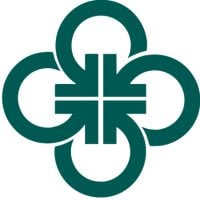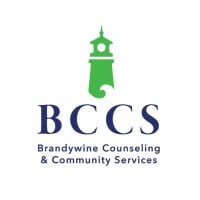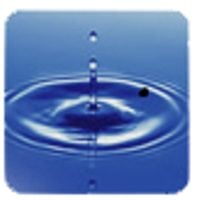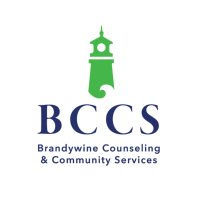
Connections Community Support Programs - Seaford
Drug Rehab Center in Seaford, Delaware
- Opioid Addiction
- Dual Diagnosis
- Drug Addiction
The Connections Community Support Programs - Seaford rehab center is an ideal option for those in Delaware looking to get sober, offering several levels of care, including outpatient, detox, and residential treatment, as well as specialized programs for opioid addiction and dual diagnosis. The center accepts private health insurance, making it a cost-effective option for those seeking treatment.
About Connections Community Support Programs - Seaford in Delaware
Connections Community Support Programs - Seaford is an addiction treatment facility located in Seaford, Delaware. Founded in 2021, this center specializes in the treatment of opioid addiction, dual diagnosis, and drug addiction. They offer a range of levels of care, including residential, outpatient, detoxification, and drug rehabilitation services. Connections Community Support Programs - Seaford accepts private health insurance and is affiliated with CORAS Wellness & Behavioral Health.
Connections Community Support Programs - Seaford provides a comprehensive array of services for individuals struggling with addiction and substance abuse. Their dedicated team offers a variety of treatment methods such as counseling, therapy sessions, group support meetings, as well as medical and psychiatric interventions. With an emphasis on personalized care tailored to individual needs, this facility strives to guide clients towards lasting recovery and improved mental well-being. Utilizing their expertise and evidence-based practices, Connections Community Support Programs aims to help individuals break free from the grip of addiction and successfully reintegrate into society.
Genders
Ages
Modality
Additional
Conditions and Issues Treated
Opioid addiction treatment should be done in a medically supervised drug rehab. While taking opioids, users will typically use other substances to enhance the effects of opioids or to reduce the adverse effects of opioid use. Opioid addiction treatment will include detoxification and drug rehab counseling to help both the user and their loved ones learn how to live a successful sober lifestyle.
Treatments such as methadone, buprenorphine, and naltrexone are three medications that can help treat opioid addiction. These drugs work on the brain’s pleasure center and reduce cravings and the effects of illicit opioids such as heroin. These drugs can be either given orally or by injection. Individual drug rehab counseling sessions can be helpful to discuss any questions or concerns with the drug treatment program. This counseling will also help the user set goals for when they finish drug rehab.
Opioid addiction recovery is a long process. Many of the changes to the brain caused by opioid use cannot be undone, but with time and the proper treatment, a person can return to normal function. After detox, treatment will include drug rehab counseling and entering a halfway house or sober living community. Aftercare is critical to long-term recovery, as it helps the user avoid relapsing and entering back into drug rehab.
Levels of Care Offered
This center offers a variety of custom treatment tailored to individual recovery. Currently available are Detox, Drug Rehab, Outpatient, Residential, with additional therapies available as listed below.
An addict may have to go through alcohol or drug withdrawal. While detox may be uncomfortable, it is not life-threatening. Detoxification allows the addict to rid the body of all traces of drugs or alcohol and gives the addict a clean slate for their recovery. In an inpatient or outpatient setting, detox can be managed medically.
“Outpatient treatment is ideal for those who have a lower intensity addiction. It’s also suitable for those with a supportive environment and those on a tight budget.
Outpatient treatment can be considered the lowest intensity level of addiction treatment. It is ideal for early phase addiction or lower intensity addictions. It may involve weekly sessions instead of daily. Peer group support, 12-step programs, and individual counseling may still be used and anti-addiction medication.
Residential treatment programs are those that offer housing and meals in addition to substance abuse treatment. Rehab facilities that offer residential treatment allow patients to focus solely on recovery, in an environment totally separate from their lives. Some rehab centers specialize in short-term residential treatment (a few days to a week or two), while others solely provide treatment on a long-term basis (several weeks to months). Some offer both, and tailor treatment to the patient’s individual requirements.
Therapies & Programs
No single treatment works for all addicts; therefore, the goal of treatment and therapy should be to find what works best for each individual. Some people requiring addiction treatment may only need a few weeks of inpatient care. Others will require long-term residential care. Tolerance and withdrawal levels vary from person to person and thus affect the intensity of the treatment needed.
If an individualized approach to treatment and therapy is not offered, addicts may fail to reap benefits from their efforts. Professionals must customize plans according to their patient’s needs, limitations, and strengths. The goal of all forms of addiction treatment should be for addicts to find healthy ways to cope with their addiction and its underlying causes.
The therapies usually include siblings, children, and parents who are involved in their daily lives. These sessions are vital because they address past issues that may have hampered an addict’s or alcoholic’s recovery and provide support at a crucial time!
One of the most critical aspects of family therapy is helping addicts’ loved ones see their situation in a new light. It’s also one of the most challenging things a family can do when a loved one struggles with addiction or alcoholism.
Group therapy is held in a safe, controlled setting where patients can feel comfortable sharing their struggles and gaining perspective through shared conversations. It takes place in a group rather than one on one to prevent feelings of isolation or being unique in their situation while creating an environment for addicts at Connections Community Support Programs - Seaford to develop fellowship, accountability, and support. Group therapy is an important tool in recovery that prevents cravings that prompt a return to active addiction.
Payment Options Accepted
For specific insurance or payment methods please contact us.
Is your insurance accepted?
Ask an expert, call (888) 674-0062
CORAS Wellness & Behavioral Health Associated Centers
Discover treatment facilities under the same provider.
- Connections CSP - Seaford in Seaford, DE
- Connections CSP - Millsboro in Millsboro, DE
- Connections CSP - Newark in Newark, DE
- Connections Community Support Programs - Wilmington in Wilmington, DE
- Connections CSP - Smyrna in Smyrna, DE
Learn More About CORAS Wellness & Behavioral Health Centers
Additional Details
Specifics, location, and helpful extra information.
Seaford, Delaware 19973 Phone Number(833) 886-2277 Meta DetailsUpdated November 25, 2023
Staff Verified
Connections Community Support Programs - Seaford Patient Reviews
There are no reviews yet. Be the first one to write one.

Location
105 N. Front St.
Seaford, DE 19973
(833) 886-2277
CORAS Wellness & Behavioral Health
Language
- About Connections Community Support Programs - Seaford in Delaware
- Conditions and Issues Treated
- Levels of Care Offered
- Therapies & Programs
- Payment Options Accepted
- CORAS Wellness & Behavioral Health Associated Centers
- Additional Details
- Connections Community Support Programs - Seaford Patient Reviews
Seaford, Delaware Addiction Information
The Delaware substance abuse statistics show that the number of deaths due to drug injury is higher than the national average. Over 16% of all deaths in the state between 2008 and 2017 were caused by drugs and alcohol. The state has been rolling out more services to address addiction in an effort to get help to those who need it.
9% of the population in Seaford, DE has a substance abuse problem. 21.4% of admissions to drug treatment facilities are for abuse of prescription drugs. African Americans accounted for 36% of all admissions, while Caucasians made up 30%. In 2016, there were a total of 122 drug-related arrests. This was up from 112 in 2015. Different drug treatments available in Seaford, Delaware, include inpatient rehab and outpatient rehab.
Treatment in Nearby Cities
- Rehoboth Beach, DE (29.3 mi.)
- Laurel, DE (6.3 mi.)
- Millsboro, DE (17.5 mi.)
- Smyrna, DE (45.5 mi.)
- Ellendale, DE (15.2 mi.)
Centers near Connections Community Support Programs - Seaford



The facility name, logo and brand are the property and registered trademarks of Connections Community Support Programs - Seaford, and are being used for identification and informational purposes only. Use of these names, logos and brands shall not imply endorsement. RehabNow.org is not affiliated with or sponsored by Connections Community Support Programs - Seaford.

